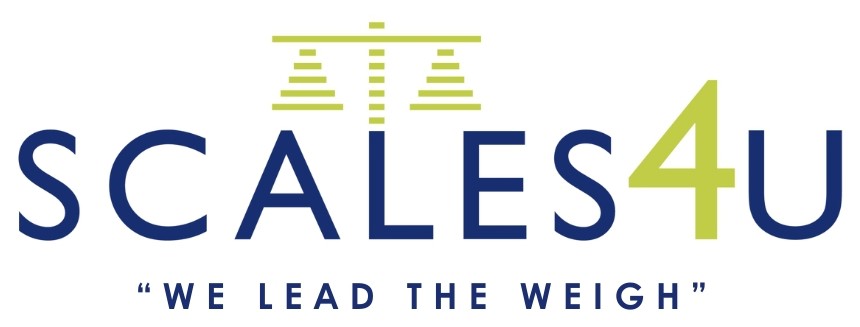In the world of weighing systems, accuracy is the foundation of efficiency, compliance, and customer trust you need to calibrate your scale. Whether you’re weighing raw materials in manufacturing, measuring ingredients in food production, or ensuring precise quantities in retail, accurate scales are critical to success. Yet, calibration—the process of ensuring scales remain accurate—is often overlooked. As industry experts, we understand why scale calibration is essential, and in this article, we’ll share its benefits and why it should be a non-negotiable part of your operations.
What Is Scale Calibration?
Scale calibration is the process of comparing a scale’s measurements against a known standard and adjusting it if discrepancies are found. Over time, even the most durable scales can drift due to wear and environmental conditions, which is why calibration is necessary. It ensures every reading is accurate and reliable, safeguarding your operations from costly errors.
Why Calibration Matters
Accuracy Protects Your Bottom Line
Inaccurate scales can lead to over-delivering product or overcharging customers. In either case, it costs your business. For instance, giving away extra product in manufacturing silently erodes your margins, while under-delivering in retail can result in customer complaints. Proper calibration ensures your measurements are spot-on, saving you money and maintaining trust.
Compliance with Industry Standards
Many industries operate under strict regulations, particularly in sectors like pharmaceuticals, food production, and manufacturing. Regular calibration ensures your scales comply with these standards, protecting your business from fines, product recalls, or audit failures. Compliance isn’t just about avoiding penalties—it’s about demonstrating a commitment to quality and reliability.
Consistency in Product Quality
Accurate measurements are crucial for maintaining product quality. Inconsistent weights can affect the performance, taste, or shelf life of a product. For example, in food production, even minor discrepancies in ingredient measurements can lead to entire batches failing quality checks. Calibration ensures your processes remain consistent, resulting in a product you can be proud of every time.
Enhancing Business Reputation
Customers and clients rely on your business to provide precise, trustworthy results. A miscalibrated scale can quickly undermine that trust, leading to disputes, refunds, or even the loss of long-term customers. Regular calibration reinforces your commitment to accuracy and professionalism, helping to maintain a strong reputation in your industry.
Factors That Affect Scale Accuracy
Wear and Tear from Usage
Scales that are heavily used experience more wear and tear, which can lead to inaccuracies over time. Frequent loading, unloading, and handling can take their toll on even the most robust equipment.
Environmental Influences
Conditions such as temperature fluctuations, humidity, and vibrations can subtly impact scale performance. For example, a scale in a hot, humid bakery may behave differently than one in a controlled laboratory environment.
Aging Equipment
As scales age, their internal components may degrade, reducing accuracy. Even with proper care, older equipment may require more frequent calibration to maintain reliability.
Regulatory Requirements
Certain industries require regular calibration as part of ISO standards or other compliance frameworks. Neglecting these requirements can lead to non-compliance, with potential penalties and reputational damage.
How Often Should Scales Be Calibrated?
Calibration frequency depends on several factors. Industry standards in regulated sectors often mandate monthly or quarterly checks, while less stringent applications might only require annual calibration. Heavy usage or challenging environmental conditions may warrant more frequent assessments. Manufacturers typically provide guidance, but establishing a proactive calibration schedule tailored to your business needs is a best practice.
The Scale Calibration Process
Calibration begins with a thorough inspection of the scale to identify physical damage or potential issues. Certified weights are then used to compare the scale’s readings against a known standard. If discrepancies are found, technicians adjust the scale to ensure accurate measurements. The process concludes with a calibration certificate, which serves as proof of compliance and is vital for audits or regulatory checks.
Benefits of Professional Scale Calibration Services
Partnering with professional calibration experts ensures precision and peace of mind. Certified technicians use specialized tools to deliver accurate results and are well-versed in industry standards, ensuring your scales remain compliant. Outsourcing this critical task also saves your team time and allows them to focus on core business operations. Companies like Scales4U (that’s us) offer both on-site and in-house services, tailoring solutions to meet the unique needs of your equipment.
Risks of Skipping Scale Calibration
Neglecting calibration can have significant consequences. Inaccurate measurements may lead to financial losses, regulatory penalties, and dissatisfied customers. Additionally, inefficient processes stemming from faulty equipment can create hidden costs over time. Regular calibration mitigates these risks, protecting your operations from preventable setbacks.
Precision Is Non-Negotiable
Calibration is more than a technical requirement—it’s an investment in your business’s efficiency, compliance, and reputation. Regularly calibrated scales not only ensure accurate measurements but also prolong the life of your equipment and reinforce trust with your customers. By working with trusted experts like Scales 4 U, you can maintain the highest standards of precision and reliability in your operations. In a world where accuracy matters, calibration is the cornerstone of success.

